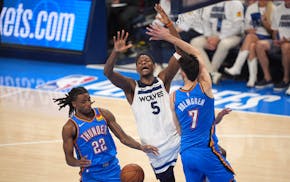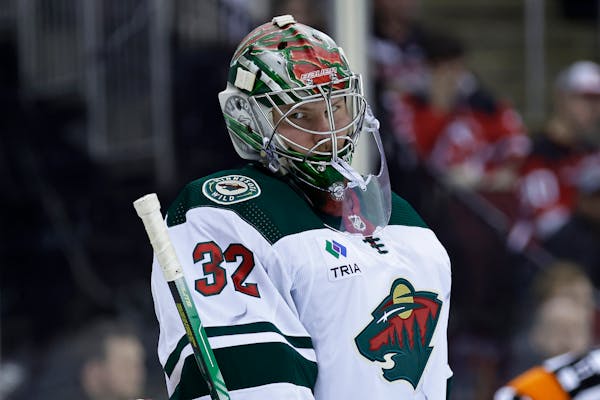During one of the first conversations I had with former Twins General Manager Andy MacPhail, in 1993, he all but pounded the table when explaining his philosophy.
Either he was trying to win it all, or he was rebuilding. He had no interest in finishing in the middle of the pack, which he viewed as sporting purgatory — neither good enough to contend nor bad enough to receive high draft picks, justify trading veterans, or invest playing time in developing prospects.
MacPhail's philosophy served him well. He won two World Series in five years. In six of his eight other seasons as the Twins' general manager, his team finished below .500 and well out of contention. In a playoff structure that sent few teams to the postseason, that was an excellent tradeoff, because there was, in that era, no reward for mediocrity.
MacPhail's philosophy no longer applies to major professional sports.
Playoff fields have expanded, meaning any team hanging around .500 in just about any major professional sport remains in contention throughout the season.
Being an average team used to be a curse. Now it's a blessing.
Regular-season irrelevance damages attendance and season-ticket sales, pushing fans toward other entertainment options.
Intentionally losing to land top draft picks has proved to be an unreliable path to excellence, failing far more often than it works.
Which is why Minnesotans' constant kvetching about their lack of championships should be taken as seriously as constant kvetching about the weather. Regular seasons are more important than postseasons these days, and they are serving the Minnesota sports fan well.
Take this week.
On Monday, the Timberwolves played one of the most entertaining basketball games you will ever see, beating the Knicks at Madison Square Garden.
Tuesday, the Wild played a similarly entertaining game against the Devils in New Jersey, winning with a rarity: a last-second skate-off goal.
Wednesday, Karl-Anthony Towns returned to the Wolves lineup, played remarkably well after a four-month layoff, and hit two free throws to beat Atlanta.
The Wild are a middle-of-the-pack playoff team. Thanks to a playoff format that allows eight of the 16 teams in each conference to make the postseason, they are contending for home-ice advantage in the first round. They will play 82 games this year, and each will be meaningful.
The Wolves, by record, are mediocre. But because of the parity in their league and a playoff system that allows 20 of the 30 teams to play at least one postseason game, each of their 82 games will be meaningful.
The Twins have performed poorly for the past two seasons, and their recent winning seasons have been tainted by poor postseason performances. They also had one of baseball's best records in 2019 and 2020, meaning that each of their regular-season games for two solid summers offered intrigue, especially when the team set the big-league record for home runs in 2019.
Still smarting from the Vikings' first-round loss to the Giants? Fine, but for four months that team produced 13 victories while playing one of the most, if not the most, entertaining seasons in franchise history.
The Lynx don't have to apologize for postseason failures, not after winning four titles in seven seasons between 2011 and 2017. They also entertained us during COVID with an unexpected, overachieving advance to the WNBA semifinals in 2020.
Teams feel obligated to talk about championships, but the true goal of most modern franchises is to achieve sustained relevance, to turn as many regular seasons as possible into riveting serial TV.
Championships are thrilling, but they don't guarantee long-term popularity. The Twins won the World Series in 1991 and led the old American League West in August of 1992. By the end of the decade, the Twins were on an eight-season losing streak and facing contraction.
The local franchise most often slammed for failing to win a championship is also the greatest local success story. The Vikings are the state's most popular team. They play in one of the world's best stadiums and practice at a stunning complex. They sell out every game. Their merchandise is ubiquitous. They contend in a high percentage of their seasons.
Regular-season success made the Vikings franchise the powerhouse it is today.

Souhan: Anxiety and depression in the NFL helped inspire Lindsey Young's children's book
Souhan: For Lynx star Napheesa Collier, 'Phee' is just fine

Souhan: Will the Wolves trade for Kevin Durant? Should they?

Souhan: If Edwards is a franchise player, he needs to act and play like it


